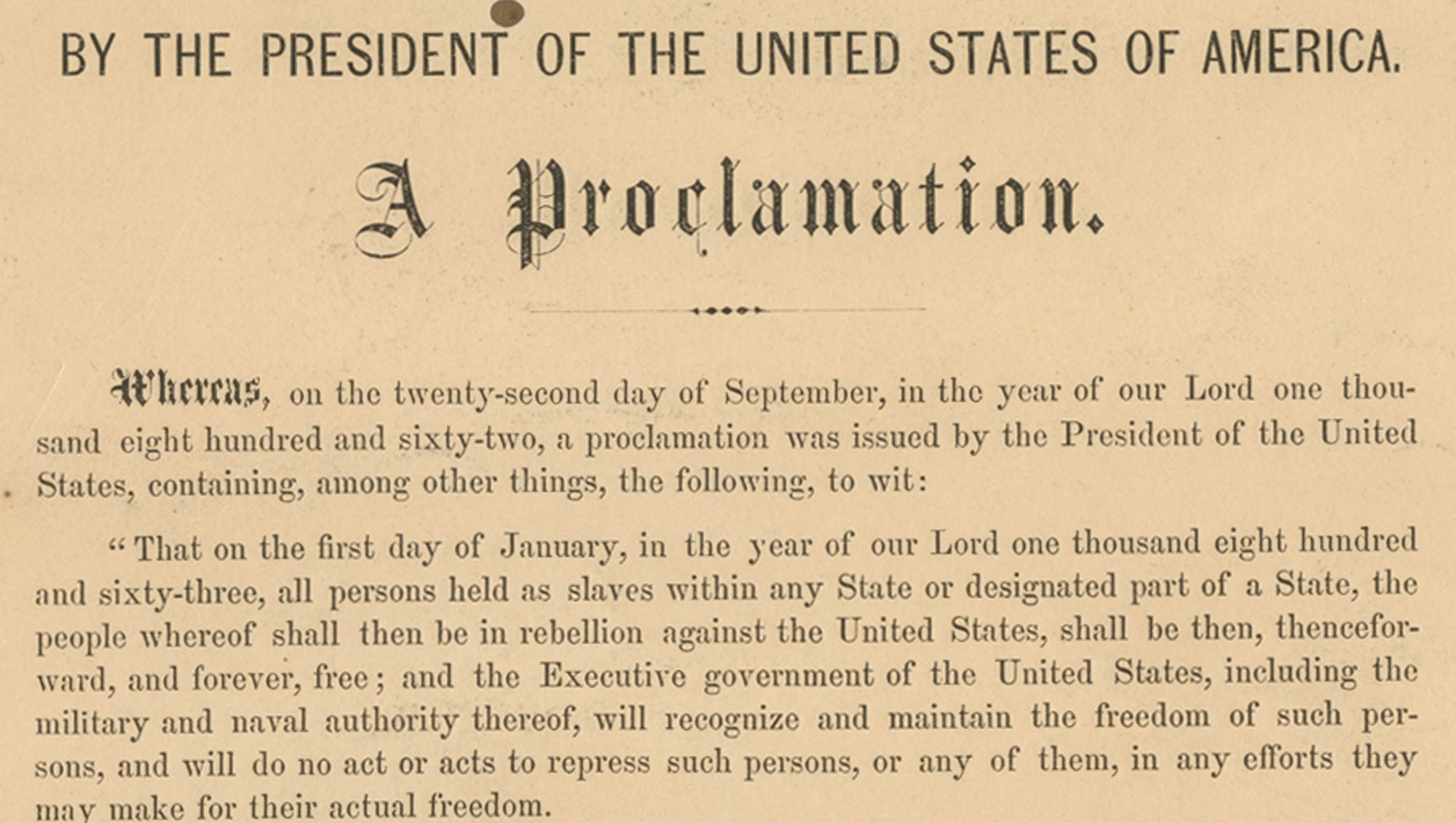
The Emancipation Proclamation did not actually free all slaves in the United States, but it did provide a critical turning point in the Civil War and paved the way for the eventual abolition of slavery.
The Emancipation Proclamation was a historic executive order that declared “that all persons held as slaves” within the rebellious states “shall be then, thenceforward, and forever free.” The Proclamation was issued by President Abraham Lincoln on January 1, 1863, during the American Civil War. The Proclamation did not actually free all slaves in the United States, but it did provide a critical turning point in the Civil War and paved the way for the eventual abolition of slavery.
History
The Emancipation Proclamation was a major turning point in American history, especially for Black Americans who had been enslaved for centuries. The Proclamation was issued after years of activism and struggle by abolitionists and Black Americans who had fought tirelessly for their freedom. Many factors, including military necessity, political pressure, and moral conviction influenced President Lincoln’s decision to issue the Proclamation.
Impact on the Black Community
The Emancipation Proclamation had a significant impact on the Black community, as it provided a glimmer of hope and freedom to those who had been enslaved for generations. It gave many Black Americans the courage and inspiration to fight for their freedom and rights, and it ultimately paved the way for the end of slavery in the United States. However, the Emancipation Proclamation did not immediately free all slaves, and it took many more years of struggle and activism to fully achieve freedom and equality for Black Americans.
Impact on the White Community
The Emancipation Proclamation also had a significant impact on the white community, as it challenged deeply ingrained beliefs and traditions about race and slavery. Many white Americans opposed the Proclamation and continued to support slavery, while others recognized the need for change and became allies in the fight for abolition and civil rights.
Influence on Culture
The Emancipation Proclamation has had a lasting influence on American culture, particularly in the way we understand and remember the legacy of slavery and oppression. It is celebrated every year on Juneteenth, a holiday commemorating the end of slavery in the United States. The Proclamation has also been the subject of many works of literature, art, and music, including the famous “Battle Hymn of the Republic.”
Importance
The Emancipation Proclamation was a critical turning point in American history, marking the beginning of the end of slavery in the United States. While it did not immediately free all slaves, it provided a powerful message of hope and freedom to Black Americans and paved the way for the eventual abolition of slavery. The Proclamation remains an important symbol of the ongoing struggle for racial justice and equality in the United States.
How to be an Ally
To be an ally to the Black community, it is important to acknowledge the ongoing legacy of slavery and systemic racism in the United States. This includes recognizing the significance of the Emancipation Proclamation and the continued struggle for freedom and equality for Black Americans. Allies can support this struggle by educating themselves on the history and current realities of racism, amplifying the voices and experiences of Black Americans, and actively working to dismantle systems of oppression in their communities and beyond.
Sources:
- “Emancipation Proclamation,” History.com, https://www.history.com/topics/american-civil-war/emancipation-proclamation
- “The Emancipation Proclamation,” National Archives, https://www.archives.gov/exhibits/featured-documents/emancipation-proclamation
- “The Emancipation Proclamation: What Came Before, How It Worked, And What Followed,” National Museum of African American History and Culture, https://nmaahc.si.edu/blog-post/emancipation-proclamation-what-came-before-how-it-worked-and-what-followed